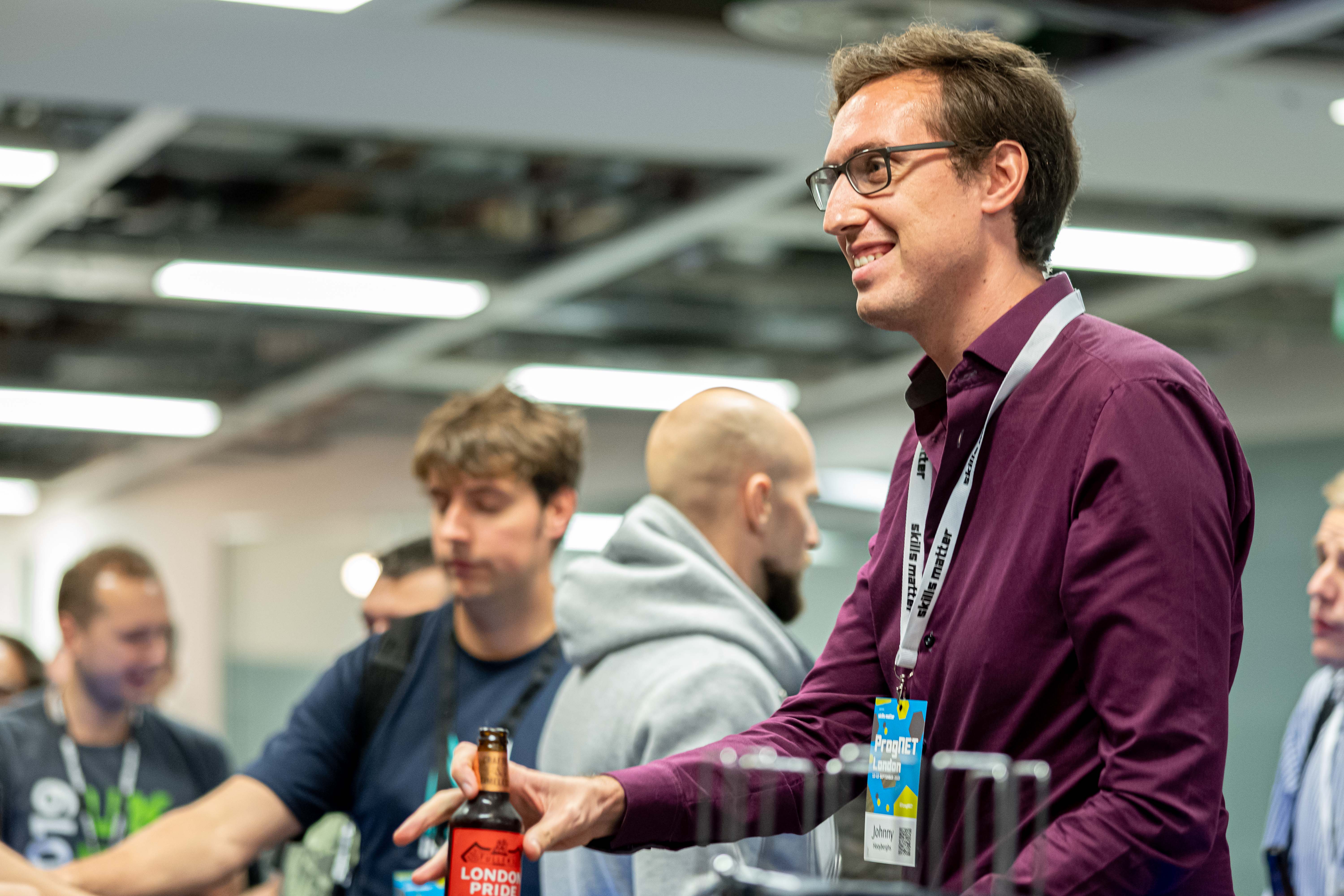Partner in the spotlight: Involved

For our third “Partner in the Spotlight”-interview, I had a pleasant conversation with Johnny Hooyberghs, .NET developer and consultant for Involved.
Hi Johnny, can you introduce yourself and tell us a bit about your role at Involved?
Since I was an early teenager, I felt like I was a creative person. I tried drawing or playing a musical instrument, but I wasn’t very successful with that. When my mom bought a 386 DR-DOS computer, I discovered QBASIC and started building little programs using that. That’s where I got my first taste for developing software and I knew immediately I wanted to pursue that interest. After graduating, I landed a job in a software company that had a very old Windows application for the elderly care sector, and they wanted to do a rewrite using the .NET Framework. I’m super grateful for this opportunity because they gave me enough freedom to develop myself, I got to learn so much, and I had a fun time doing it.
After that, in 2014, I got into contact with Jan Rauter. Jan was starting a new consultancy firm, focussed on .NET and JavaScript, and we had a good match. Involved is a relatively small company where everyone knows everyone, without any kind of hierarchy. For Involved, I’m a .NET developer in a team of people with the same passion that are eager to talk about their passion.
Can you tell us a bit more about Involved?
As I said earlier, Involved is founded by Jan Rauter in 2014. Its core business is software development consultancy focussed on .NET and JavaScript, but we also do small in-house projects. Involved is called Involved because our people are very Involved with their job, with their passion and with their customers.
Involved is not governed by a hierarchical structure. We use the S3 framework, also known as Sociocracy 3.0. After making the decision with everyone, we implemented S3 about two years ago. S3 makes everyone responsible for the governance and the future of the company. Building a company, a brand and dedicated people requires focus on different kinds of topics. Involved has different focus groups in charge of setting the goals for specific topics it focusses on, and creates and implements the necessary steps to reach these goals. This way, everyone at Involved can be part of steering the company into the future and thus feel more Involved.
You have been a partner of Visug for many years now. Why do you sponsor Visug?
Two out of many focus groups at Involved focus on Visug. One is about community and the other one is about the Involved brand. We think it is important to support the software development community and to make ourselves known in that community to provide value to other like-minded passionate people. Because the past two years showed us that community is an important part of our brand DNA, we consolidated these focus groups into one, that is in charge of branding.
If we organize a Visug evening together, what does such an evening ideally look like?
The perfect Visug evening for me should contain technical content of high quality combined with non-technical content. It is important for the developer community to stay up-to-date with technical stuff, but also to learn about all the non-technical stuff that helps them to be successful in their passion for software development. Even more important is that a Visug evening should be a personal evening where like-minded people can talk about the things they do and love, and can share the ideas they have.
Due to corona we were unable to organize a Visug evening together this year. Do you see other ways to connect with our community during these times?
Because all events are now virtual, it’s easier to speak at local community events and conferences due to the logistics involved. Although, in-person events still have my preference, virtual event also have a very positive effect on the community.
Physical events allow the attendees to casually talk to each other and talk to the speakers. Speakers in the developer community are no rock-stars, they are happy to talk to their audience and share their thoughts, but also learn from them. Unfortunately, virtual events somehow create a barrier that is more difficult to get through and actually talk to each other. On the plus side though, virtual events need less budget which makes the ticket prices drop and create more opportunities and inclusivity for the entire developer community.
When you ask my personal opinion for the future: I see a bright future for hybrid events where people can make the decision themselves to go in-person or enjoy free, or less expensive, live content from the comfort of their living room or (home) office.
Thank you for your time, Johnny!
